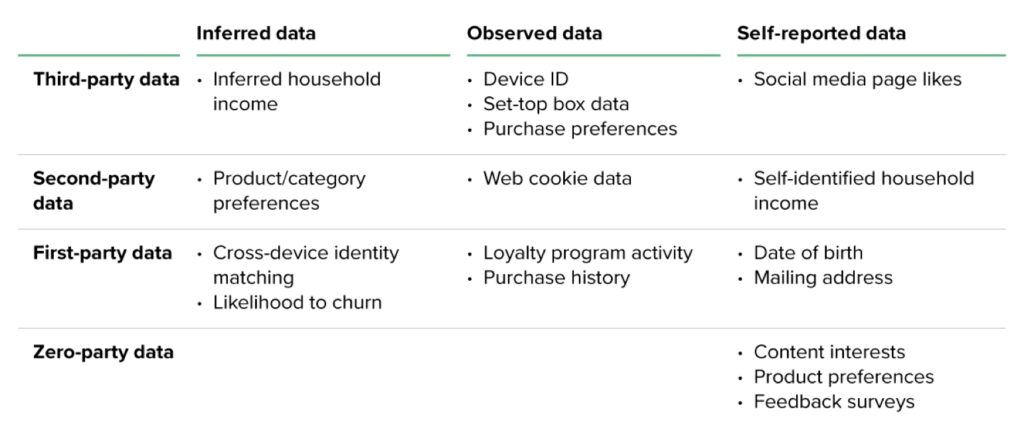
As marketing becomes ever more digitalised, and customers expect personalisation at the touch of a button, a comprehensive data strategy could make all the difference.
In this blog, we will take a closer look at some of the key common failures in marketing data strategies, and the best practices that your business can implement to help avoid these pitfalls.

An effective marketing data strategy should focus on the type of data that is collected, such as first-party data, third-party data, second-party data, and zero data (example below):

Additionally, companies must consider intrinsic risks, such as privacy and security issues. Customers are becoming increasingly privacy-aware, and data security breaches can be very damaging to a company’s reputation.
It’s also crucial to consider the technical limitations associated with different types of data. Third-party data can be inaccurate and not deliver the expected return on investment.
To succeed in modern-day marketing, companies must develop effective data strategies that focus on sound data governance, security, management, and maximising the use of available technology.
By following best practices, such as transparency and earning customer trust, targeting specific use cases, optimising existing technology, and focusing efforts on quality data, businesses can create data strategies that will enable them to unlock growth and achieve better returns on their marketing investments.
If you would like to hear more from one of our marketing technology or automation experts, Get in touch today and the team at redk will be happy to help.

